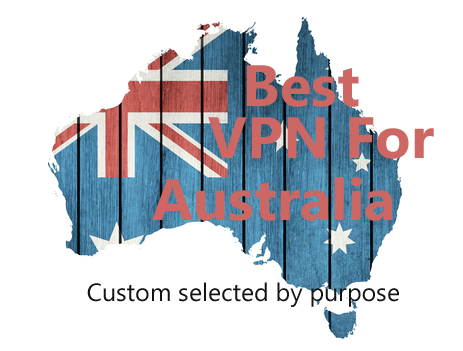
Serious file-sharing enthusiasts know the importance of privacy while torrenting. Since the protocol is inherently public, it’s a good idea to mask your identity as much as possible.
And there are a number of tools that can do that for you. And more still that claim to, or have been touted on internet forums as useful.
This article will settle the argument once and for all. Which tools actually useful, and which ones aren’t.
Key Takeaways (best tool?)
While most of these tools and methods offer some benefit, a VPN is the clear winner. A high-quality SOCKS proxy is also a decent backup option. Seedboxes are the only other contender but they’re too pricy and complicated for the casual user.
Best Options:
The vast majority of torrenters who have already taken the leap of anonymity use our #1 recommended method — a VPN. Preferably a non-logging one like NordVPN or IPVanish.
But go ahead, read the full guide before making up your mind. In the end, you’ll likely decide that peace of mind is worth at least $6 a month (the average cost of an annual VPN subscription).
#1 – Use a Virtual Private Network (VPN)
A VPN is the easiest, most reliable, and most secure method to hide your torrent activity from prying eyes. Originally used for secure corporate and military communications, VPN technology is now becoming a standard consumer security tool (much like antivirus software).
With a quality VPN provider, you can:
- Encrypt 100% of your internet traffic with unbreakable 256-bit encryption
- Keep your ISP from seeing what websites you visit, files you download or videos you stream
- Unblock sites that are restricted in your country (or local network)
And best of all, there are now more than 10 VPN providers that don’t keep any logs at all. They don’t even record what IP address you were assigned or server you connected to. When you consider that your Internet Provider logs all kinds of stuff about you’re online activity, this is a huge leap in privacy.
How to set it up
Using a VPN is incredibly easy. Simply subscribe to a torrent-friendly VPN, download their software, login, and click connect. The encryption and IP-address switching happens automatically behind the scenes. Just open uTorrent and download to your heart’s content!
You won’t need to make any changes inside your torrent client, and VPNs will work with any client (Vuze, uTorrent, Qbittorrent, you name it).
- VPN Protocol – Wireguard is a newer protocol and a great blend of speed & security. OpenVPN is the best fallback if your provider doesn’t have Wireguard.
- Encryption Strength – If you provider has adjustable encryption, 128-bit AES will give you faster speeds than 256-bit, and is still quite secure.
- Kill-Switch – You’ll want to enable this security feature if your VPN offers it (most do). A Kill-switch prevents unencrypted traffic (or your IP address) from leaking publicly if the connection drops.
Pros & Cons
VPN Pros
VPN Cons
Recommended VPN Providers
When torrenting, you should always use a VPN that doesn’t keep logs. This includes not only activity logs, but also metadata connection logs, which often include IP-addresses and timestamps.
Below you’ll find our top picks. These are three of the best VPNs for torrenting. And all of them are zero-log. In fact, PIA has proven their logging policy in court. Twice.
1 |
| from $2.69/mo 30-day refund policy | |
2 |
| from $3.99/mo 45-day refund policy | |
3 |
| from $6.49/mo 30-day refund policy |
#2 – SOCKS Proxy
What a SOCKS Proxy does:
- Tunnel your torrent traffic through a remote server
- Hide your real IP address from peers and trackers.
What it doesn’t do:
- Encryption (usually)
- Protect all your (non-torrent) traffic
SOCKS proxies are the second most popular option for torrent privacy. Proxies have several advantages over a VPN, notably: Speed, and one-time setup. . But there are drawbacks too, such as a lack of encryption and problems handling magnet links with some services.
Use SOCKS. Not HTTP – Most of the ‘free’ proxies listed on the internet are HTTP/HTTPs proxies. Most torrent clients allow you to configure http proxy connections, but these do nothing for torrent privacy. Peer-to-peer transfers use UDP, not HTTP so you’re real IP address would still be visible using an HTTP-only proxy. Learn more about the differences.
SOCKS proxies (v5 is current standard) are known as low-level proxies. This is a good thing, meaning they can handle almost any type of traffic, including torrent transfers.
Best SOCKS proxy services
As with VPNs, you’ll want a non-logging proxy service if you plan to use it for BitTorrent. There are several standalone services, but the vast majority are owned by torrent-friendly VPN providers.
In fact, several VPNs actually include SOCKS service with all subscriptions. In general, these are the service we recommend because you get everything for about the same price as a SOCKS-only subscription.
Best zero-log SOCKS services:
- NordVPN: Includes proxy w/ VPN (multiple SOCKS locations)
- Private Internet Access: Proxy + VPN (1 SOCKS location)
- IPVanish: Proxy + VPN (1 SOCKS location)
- Torguard: Proxy sold separately (4 locations)
How to set it up
Unlike a VPN which usually comes with it’s own app, the proxy must be manually configured inside your torrent client. Not all torrent clients support proxy connections, but the 4 most popular desktop clients do.
Torrent clients that support proxies:
- uTorrent/BitTorrent (desktop version)
- Vuze/BiglyBT (desktop version)
- QBittorrent
- Deluge
- Flud (Android)
- tTorrent (Android)
Note: No web-based torrent clients directly support SOCKS proxies. This includes things like uTorrent Web, WebTorrent and Brave.
Proxy Settings
Our Torrent Proxy setup Guide has full step-by-step instructions for the most popular SOCKS providers and torrent clients.
#3 – i2P
i2P isn’t used that frequently by torrent users, for the simple fact that it’s slow. Speeds max out around 100kb/s (yes, you read that right). But in terms of privacy, it’s great.
Think of i2P like Tor. It’s a multi-layered encrypted proxy, but they actually want your torrent traffic on their network.
Advantages of i2P:
- Hide your IP address
- Anonymized traffic mixed with others sers
- Strong encryption
- multi-hop IP switching
- It’s free!
Disadvantages:
- It’s slow AF.
How to use i2P for torrents
i2P is a bit more complicated than setting up a SOCKS proxy, or even Tor. But there are several helpful instructional videos specifically for BitTorrent.
But the easiest route is to use a torrent client with built-in i2P support. For example, Vuze has an i2P plugin that makes it incredibly simple to get up and running.
#4 – Seedbox
Price: $20-$100/month
A seedbox is like a dedicated torrenting machine, but in the cloud. You get superfast connection speeds, a high bandwidth allotment, and a web interface to download the files directly to your computer.
Seedboxes are overkill for all but the most hardcore of BitTorrent users, but once you’ve tried it there’s no going back to a regular torrent client.
Seedbox Pros
Seedbox Cons
How to set it up
Buy a seedbox from a reputable provider, or roll your own. Most are sold month-to-month but some can be rented hourly.
You then connect to the seedbox either through OpenVPN or a remote desktop connection to manage the box and download torrents. Once the torrent file is complete, you can either download it to your PC via HTTPS, or stream it from the cloud (for media only).
Don’t Forget: You’ll still want to use a logless VPN or proxy on your seedbox (to anonymize your torrents). Even though the seedbox IP is different than yours, if they keep server logs, they still have your IP address and payment information (unless you pay anonymously).
#5 – PeerBlock / iBlocklist / PeerGuardian
Peerblock and other blocklist technologies have long been used by file-sharers, in hopes of blocking so-called malicious peers and IP addresses.
It’s basically an IP-based firewall, for which you can add enormous databases of ‘suspicious’ IP’s to block.
In theory this sounds great. Block the bad peers, only allow the good ones.
In reality, IP-based blocklists are borderline useless for torrent privacy, and may do more harm than good.
Why blocklists don’t work
We’ve already covered why blocklists are not remotely comparable to a VPN or proxy. But for those in a rush, here’s what you should know.
Why Blocklists are a waste of time:
- They don’t hide your real IP address
- They don’t encrypt your torrent traffic
- They don’t block all the bad peers
- They block too many good peers
- Most blocklists cost money, and need to be updated constantly.
In other words, blocklists give you: fewer peers, slower downloads, and a false sense of security. Don’t bother.
How to set it up
If you’re still intent on trying blocklists…
First, don’t. Try this a free VPN like Windscribe or Hide.me that allows torrenting.
But if you’re still not convinced, just download either Peerblock or Peer-Guardian software. Then get yourself a database of IP’s to use. You can buy them from iBlocklist, or probably even download one from (you guessed it) a torrent site.
Here’s a video tutorial with the step by step. https://www.youtube.com/watch?v=arTH40iy1iQ
#6 – Someone else’s wifi
Look, I’m going to say right off the bat that this is borderline evil if you’re going to be downloading anything that could get someone in trouble. But you wouldn’t be the first person to use cafe or hotel wifi to download a movie.
I actually watched a guy across the isle torrenting SNES ROMs using GoGo in-flight wifi recently (not a good idea).
That’s probably why most hotel and airport wifi has a pretty good firewall to block access to torrent sites and ports (which a VPN, of course, can easily circumvent).
So maybe don’t do this. Especially when there are so many free options available, including i2P, or a free VPN like Hide.me.
Summary & Thoughts
There a bunch of different ways to download torrents in (relative) safety and privacy. But some tools are clearly better than others.
- VPN – This is hands down the best option. You get encryption, an anonymous IP address, decent speeds, and easy-to-use software that adds extra functionality like IP-leak protection or Netflix unlocking.
- SOCKS Proxy – This gives easy IP-address hiding, plus one-time setup (so you won’t accidentally forget to start your VPN before downloading). There’s no encryption, but you can add lightweight encryption free using in-client stream ciphers.
- SeedBox – This is a great option if you’ve got the money. Just be aware it’ll cost minimum 3x the price of a high-quality VPN like NordVPN. And you’ll still want to add a VPN anyway for IP-anonymization.
The best of the rest? Most of the other tools aren’t serious contenders. I2P will work in a pinch (as long as the file size isn’t too big). Otherwise, try a free VPN or take advantage PIA’s a 30-day 100% refund policy to try one risk free.
Top-rated VPNs built for Torrents & P2P
1 |
| from $2.69/mo 30-day refund policy | |
2 |
| from $3.99/mo 45-day refund policy | |
3 |
| from $6.49/mo 30-day refund policy |



